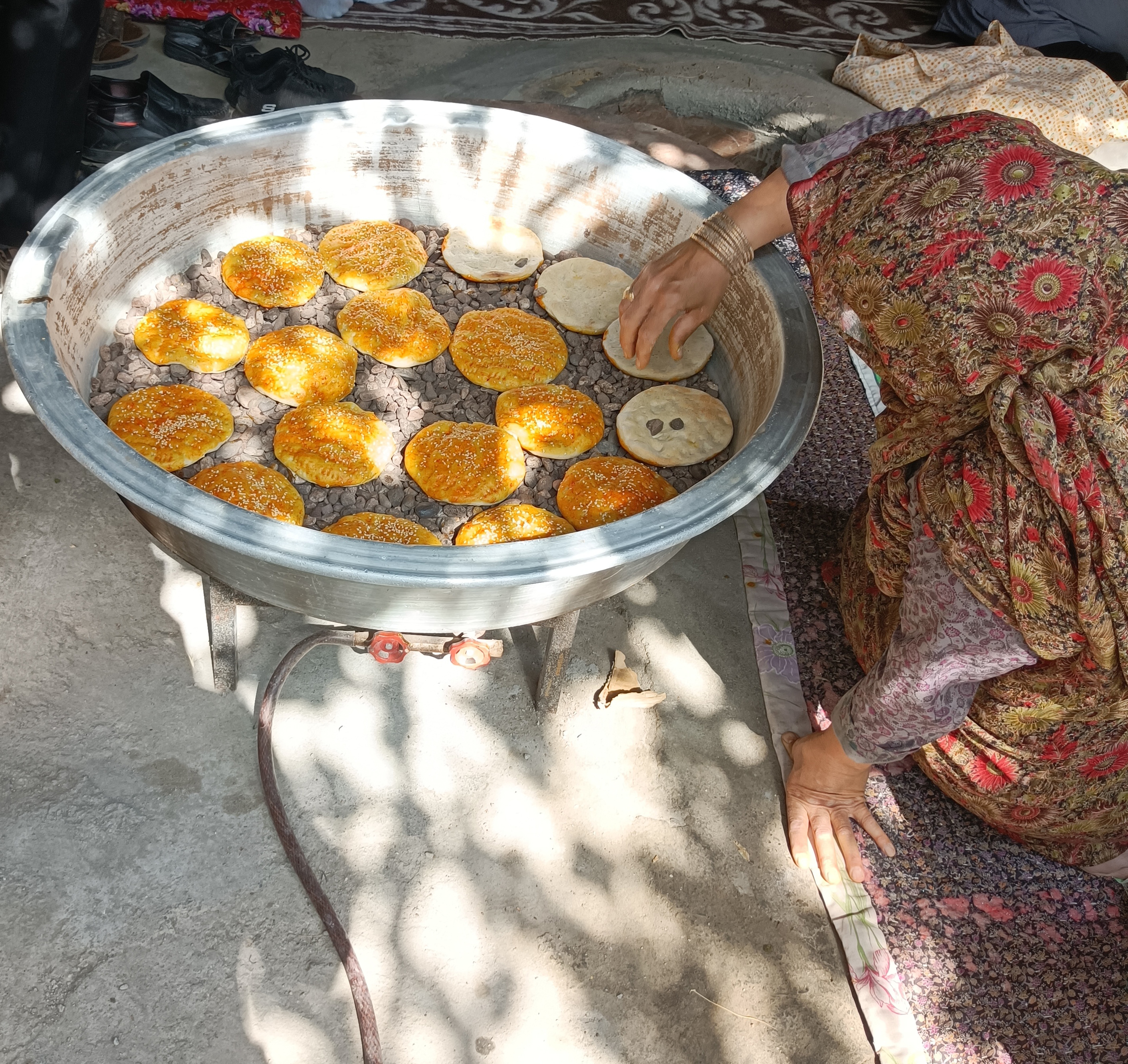Women: the core of their communities and economies
October 15, 2023

برای خواندن متن به فارسی، اینجا کلیک کنید
In Iran, there exist several communities living near wetlands, and rural women, often recognized as development enablers, play a crucial role in supporting their families and communities, while also generating income. Many of these women are involved in farming, either in partnership with their husbands or as independent wage earners and entrepreneurs.
It was in 2014 when the United Nations Development Programme (UNDP) Iran joined hands with the Department of Environment to add a new component to the project “Conservation of the Iranian Wetlands”(CIWP). Generously funded by the People and the Government of Japan, the component “Modelling Local Community Participation in Restoration of Lake Urmia through Establishment of Sustainable Agriculture and Biodiversity Conservation”, as one of its main activities, has put efforts in finding a connection between the livelihood of local communities and the rehabilitation of the wetlands.
CIWP supports the restoration efforts of the Lake through climate-smart practices, such as sustainable agriculture and diversified livelihoods to increase irrigation efficiency. The goal is to alleviate pressure on the currently scarce water resources of the Lake while supporting the livelihoods of local communities. The project works with over 14,000 farmers in 202 villages around the Lake Urmia Basin.
As a participatory intervention, in 43 villages in the basin, training courses on personal development, and capacity building for diversifying livelihoods wetland-friendly livelihoods. These courses drew the participation of over 1,500 individuals, with women comprising 85% of the attendees. The outcomes included the establishment of 39 microcredit funds and 24 livelihood groups, catalyzing significant transformations and progress for the rural women living in proximity to the wetlands.
Farideh Shir-mard is a 47-year-old woman who is living in Ajabshir County in East Azerbaijan. She works in both agricultural and non-agricultural sectors. . Her reputation among her peers is highly regarded. Upon discovering the project and its goals, Farideh showed interest, and she actively encouraged other women to partake in the project's workshops and training sessions.
Farideh has derived her income from agricultural activities, the production of traditional bread, and providing catering services for events. Through some visits, she was introduced to other rural women working in the villages where last year’s livelihood project was implemented that enabled her to build a network of her own. Moreover, she benefited from marketing training as well as workshops on baking, string cutting and growing greenhouse plants.
The facilitators of the project assisted Faridah in creating a micro-fund with participation of other village women and she has been introduced to the relevant governmental organizations to provide for part of the requirement for the production of traditional bread at a lower cost.
Farideh stated, "At the moment, my primary focus is on producing traditional bread and noodles, as well as offering catering services, rather than engaging in farming. My plan is to expand my ventures by setting up a communal kitchen involving rural women, thereby creating an additional income source for them. Thanks to my participation in the workshops and the valuable skills and techniques I acquired during these sessions, I've made significant strides, resulting in a fivefold increase in my income compared to before."
Presently, Farideh has established her own market, collaborating with 15 rural women. She markets traditional bread to confectioneries in urban areas, both through physical stores and online platforms. Additionally, she oversees a micro-credit fund designed to empower rural women and is well on her way to becoming an entrepreneur. Furthermore, as an influential figure in her community, she is actively contributing to wetland restoration efforts around the Lake. She has prioritized this objective in her work and is dedicated to encouraging and assisting more individuals, particularly women, to join in these restoration endeavors.
UNDP as the lead agency on sustainable human development and with the ultimate goal of recognizing the important economic, social and environmental value of the wetlands, will replicate the experience in two other wetlands namely Bakhtegan Wetland in Fars province and Shadegan Wetland in Khuzestan province with the ultimate goal of supporting more people to have better lives through rehabilitation of the wetlands.

 Locations
Locations